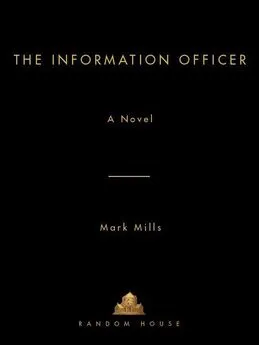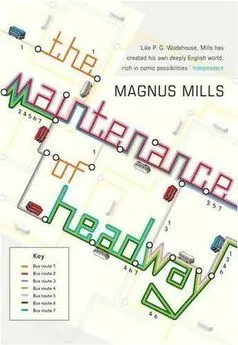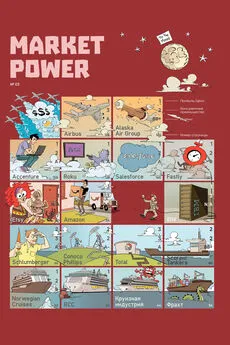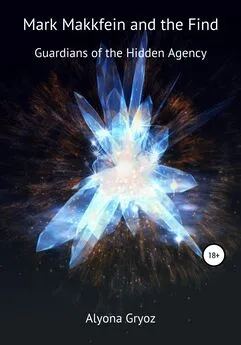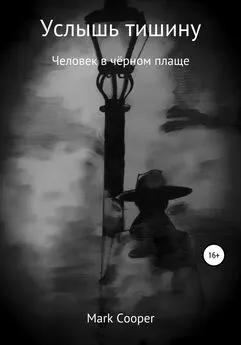Mark Mills - Amagansett
- Название:Amagansett
- Автор:
- Жанр:
- Издательство:неизвестно
- Год:неизвестен
- ISBN:нет данных
- Рейтинг:
- Избранное:Добавить в избранное
-
Отзывы:
-
Ваша оценка:
Mark Mills - Amagansett краткое содержание
Amagansett - читать онлайн бесплатно ознакомительный отрывок
Интервал:
Закладка:
With time, no doubt, she would have offered up an explanation.
With time.
Did he really think their relationship would have continued on its course indefinitely? Had he ever allowed himself to believe that it could? It would have been easier to lie to himself and say no; but there had been signs from the beginning, almost from their very first exchange. They had discussed it later, or rather she had discussed it, pushing him to admit that he had sensed it too. And he had flatly denied any such immediate feelings.
That was their game. Their dance. On other occasions, he took the lead and she did her best to step on his toes. The truth was, they’d both known they would see each other again after that first chance encounter. And they had, a little less than a week later.
It was dusk, and Conrad was by the barn, tarring a fyke net in the old cauldron once used for trying-out whale oil, racing to beat the creeping darkness.
She materialized ghost-like from the gloom, clutching a bottle of whiskey.
‘Hi.’
‘Hi.’
‘How’s the foot?’
‘Better…Not true. It keeps opening up.’
‘I told you not to walk on it.’
‘I’m not good at taking orders.’ She glanced at the cauldron. ‘What’s cooking?’
‘Tar.’
‘This is for you.’
The whiskey was his brand—Imperial—noted and logged on her last visit.
‘It’s by way of a thank you for coming to my aid…albeit a little slowly at first.’
‘You want some?’ he asked.
‘Is it any good?’
‘No.’
‘I didn’t think so. It was the cheapest one in the liquor store.’
She tried it nonetheless, mixed with Coke. As soon as he had cleaned up and changed his clothes he joined her on the deck and poured himself a glass.
‘It’s my birthday,’ she said.
‘Happy birthday.’
‘Thank you.’
‘Shouldn’t you be out celebrating?’
‘That’s exactly what my father said when I spoke to him earlier.’
‘Sounds like a wise man.’
Lillian smiled.
‘I’ll do something over the weekend,’ she said. ‘My brother and sister are coming up. They’re throwing a surprise party for me.’
‘Some surprise.’
‘My cousin let it slip. Poor Alice, she was never the brightest flame.’
They sat in silence, staring at the stars.
‘I don’t have a present,’ said Conrad, ‘but I can offer you supper.’
‘Well, that depends what’s on the menu.’
‘Lobster and caviar?’
‘You’re joking.’
‘Where’d you think they came from?’
‘I don’t know. Lobsters, I suppose, but caviar…’
‘It’s been a good year for sturgeon.’
‘You catch them here?’
He pointed at the ocean, adjusting a little to the southwest. ‘About there. Got six hundred fathoms of net fishing just off the bar. We’ll haul the gear tomorrow, set it again, keep it up till the spring run drops off at the end of May.’
‘I had no idea.’
‘Come with me.’
He fired up the generator and led her over to the old whaleboat house beside the barn. It was here that they prepared the sturgeon roe. He talked her through the operation, demonstrating how they separated then salted the eggs. When she asked if they did good business, he shrugged. He didn’t tell her that they’d made enough in the last month alone to see them good till the end of the year. Before leaving, he took a couple of tins of their own caviar off the shelf, gifts from a grateful buyer at the Fulton Fish Market eager to do more business with them. Then he plucked two lobsters from a wooden tub and asked her to choose between them.
‘I reckon we’re good for both,’ she said. ‘Don’t you?’
She set the table while he cooked. She remarked on the beauty of the sideboard, and he told her that it was made from the wood of one of the tall elms on Amagansett Main Street felled by the ‘38 hurricane. He explained that the house too was a victim of that apocalyptic storm. It had started life in East Hampton, on the western shore of Georgica Pond, put up as a summer home by a New York publisher at the turn of the century. Shattered by the high winds, it had lain derelict throughout the war before Conrad bought it, transporting it along the beach on skids to the plot of land he’d just purchased on Napeague. A section of the roof, the back bedroom and one corner of the main room were all missing, and all were replaced with lumber and shingles recovered from the old Amagansett Gun Club, sold off by the members when they decided to upgrade their bunking quarters out on Montauk.
The barn had arrived a few months later, dismantled in Amagansett then re-erected, piecemeal, beside the house. After more than two hundred and fifty years of service, the Van Duyns no longer had need of it. Ten generations of the family had stored their hay in the barn, and many more generations of cows had brushed against its sturdy uprights, rounding them off, buffing them smooth as glass.
As for the whaleboat house, the third side of the open yard formed by the buildings, that had been Rollo’s contribution to their joint enterprise. For as long as anyone could remember it had stood, sleek and low, just back from the beach at the end of Atlantic Avenue. If Conrad had offered to take Rollo on simply as a member of his crew, it would still be standing there. But he hadn’t; he had proposed that they go into business together—a true partnership, equal shares, riding out the highs and the lows together, the good years and the bad.
After Ned Kemp had overcome his initial reservations and consented to the venture, he insisted that Rollo bring something to the table. Conrad was, after all, providing the dory, the cat-boat, and a whole bunch of other gear. Rollo had never wanted for anything, but nor had he ever received payment for his labors. He was housed, clothed, fed and cared for, and in return he did what was asked of him—working the farm, crewing on the Ariadne during the bunker season, dragging for yellowtail flounder in fall, codfishing off the ocean beach in winter. There was no injustice in this, it made sense to everyone, not least of all Rollo, and it worked. Or rather, it had up until then.
When Conrad refused to accept a cash payment from Captain Ned, Rollo chipped in his only asset, his inheritance, gifted him ahead of time by his father. It was never in doubt that Rollo, of all the brothers, would be the one to inherit the whaleboat house. Since childhood he had been drawn to the building and its mysterious contents, dusty and disused, his fascination fueled by the thrilling tales of derring-do learned at the knee of his grandfather, Cap’n Josh.
By the age of ten Rollo had become the official repository of all matters relating to the Kemps’ long association with inshore whaling off the East End. He was a storehouse of anecdotes, too young to detect the whiff of embellishment clinging to them. Had a right whale, a notoriously sluggish creature, really dragged six men in a twenty-eight-foot boat two miles out beyond the bar in as many minutes?
Rollo knew of every rally made by the Kemps off the ocean beach. He knew who had first sighted the whale, who had raised the weft above their house on Bluff Road, and who had crewed for them. He could tell you the sea and weather conditions at the time, as well as the exact course taken by each whale after it was fastened on to. And he could describe in detail the nature of each kill, clean or messy, depending on the accuracy of the man administering the coup de grâce with the lance, and the ferocity of the exhausted animal’s death flurry.
His accounts only became sketchy when it came to the contribution made by the other crews who had participated in the rallies. Inshore whaling was, necessarily, a collective affair. How else to tow sixty tons of dead whale ten miles back to shore in a heaving sea? Rollo wasn’t to blame for the omissions in the stories he told. He was only repeating his grandfather’s words, and Cap’n Josh had never been renowned for the high regard in which he held rival whalemen. At best he had a grudging respect for the Van Duyns who worked the other end of the village. This diminished by degrees the further west one headed. The East Hampton crews were barely worthy of consideration or comment, and as for the ‘Wainscott dumplings’, as he called them, well, they were fit only for ridicule, putting to sea in those clumsy, oversized dories of theirs.
It was all bluster, of course. Any man who has thrust iron into a creature a thousand times his own size is inextricably bound to others who have done the same.
Conrad and Billy were eleven years old when Rollo first shared with them the secrets of the whaleboat house. It was a Friday, after school, a sunny, windblown afternoon, with choppy waves thumping against a stunt beach, and they’d had to clear the sand banked up against the doors before they could enter.
The whaleboat held center stage, like a dusty sarcophagus in some ancient tomb. Around it lay an armory of weapons to ensnare a boy’s imagination—harpoons, lances, axes, grapnels, and blades of every description for cutting into blubber. But Rollo directed their attention to the boat itself. He made them trace the sheer lines of its white pine hull with their fingertips. He pointed out the sharp stern end, explaining that the ability to retreat rapidly without turning was vital during the whale’s flurry, when a crashing blow from the vast flukes could tear the boat and its occupants apart. He showed them the wooden tholepins trimmed with leather to deaden the sound of the oars, of approaching doom; and he demonstrated how, in time-honored tradition, the boat-steerer switched places with the boat-header in order to deliver the death-stroke.
Most impressive, though, was the change in Rollo. What had happened to the nervous, downturned gaze, the halting speech, the struggle to put names to all but the most commonplace objects? He spoke with a confidence he had never once displayed in the classroom, plucking technical terms from the air at will.
Conrad and Billy must have passed the test, for they were invited to return time and time again. Together they re-enacted the stories handed down by Cap’n Josh to his grandson, Rollo standing tall and proud in the stern, barking orders to his depleted crew of two—‘Slack back!’…‘Hold water!’…‘Spring ahead!’…‘Stern all!’—before hurling the harpoon into a big burlap sack of hay conscripted to play the whale. With time, willing crew members were found to man the other oars. Then numbers climbed beyond the capacity of the boat, and tales of inshore rallies made way for grander, more epic yarns of deep-sea, round-the-horn whaling that could accommodate a larger cast of characters.
There was never any shortage of adventures to be played out. As a young man, Cap’n Josh had sailed from Sag Harbor on the ocean-going whaleships, the last of three generations of Kemps to do so. He had made three trips in all, visiting both frosty ends of the globe, rising through the ranks from pimpled greenhorn to chief harpooner. When gas lighting finally put paid to the demand for whale blubber, he returned to the wife and young family he hardly knew, a respected man, and a rich one.
Like others in Amagansett and East Hampton fortunate enough to have survived their time aboard the whaleships, he’d had to content himself with sporadic rallies off the ocean beach in late winter. After the speedy finbacks and hostile sperm whales of the southern oceans, the local right whales—long on blubber and bone, short on speed—made for easy quarry. Then suddenly, some years before the Great War, the whales disappeared. Inshore whalemen up and down the coast hung up their harpoons. All the gear was stowed away, forgotten.
Читать дальшеИнтервал:
Закладка:

